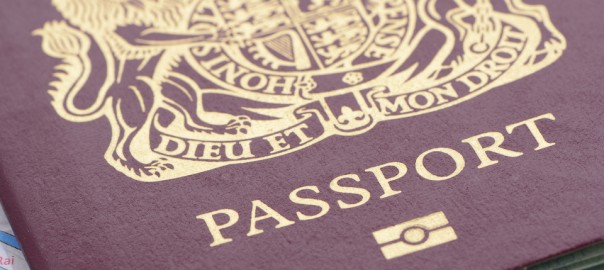The UK immigration options for skilled migrant workers have diminished significantly in the last few years, not least due to the closure of the popular Tier 1 (General) and Tier 1 (Post Study Work) categories. The changes are in line with the Government’s stated aim to reduce net migration to the tens of thousands, although routes remain open to those who are able to navigate the complexities of the UK’s immigration rules.
Tier 1
Tier 1 is for high value migrants who wish to invest in the UK, undertake entrepreneurial activities, or who are exceptionally talented.
Government statistics for the year ending June 2015 demonstrate that the overall number of Tier 1 visas has fallen by 23%, and that only 138 Tier 1 (Exceptional Talent) visas, 2,205 Tier 1 (Investor) visas and 3,369 Tier 1 (Entrepreneur) visas were issued.
Tier 1 (Exceptional Talent)
The Tier 1 (Exceptional Talent) category is for migrants who have been endorsed by a Designated Competent Body as an internationally recognized leader, or an emerging leader, in the arts, science, humanities, engineering or digital technology sector.
The digital technology sector was added in April 2014, with the aim of making the UK competitive in the market for global tech talent. However in reality, it has been so difficult to satisfy the requirements in this category that even highly skilled and talented individuals will not qualify, and in any event, there are only 200 places available each year. From 12 November 2015, applicants who show “Exceptional Promise” will also be considered for an endorsement (as is the case for all other Exceptional Talent subgroups). This crucially lowers the threshold for those applicants who are in the early stages of their career, however it remains to be seen how flexible the Designated Competent Body will be when considering whether or not to endorse an applicant, and this change is likely to have only a negligible impact.
Tier 1 (Entrepreneur)
The Tier 1 (Entrepreneur) category is open to those who wish to join, take over or establish a business in the UK. In order to be successful, applicants have to demonstrate that they have access to £200,000 and pass an onerous “genuine entrepreneur” test (which was introduced in January 2013), which gives the Home Office a very wide degree of discretion to refuse an application. Refusal rates in this category are shockingly high (around the 50% mark), not helped by the fact that visa applications are being determined by individuals who may have absolutely no knowledge of the particular sector in which the individual intends to operate (a task made even more difficult in highly specialised and technical industries). Applicants are not able to apply using the same day premium service, and will often therefore have to wait several months for their applications to be processed.
The requirements for switching into the Tier 1 (Entrepreneur) category in the UK were tightened in July 2014, particularly impacting students, who have very bleak options for staying in the UK to work after completion of their studies.
In March 2015, the Migration Advisory Committee (MAC) was commissioned by the Government to review the Tier 1 (Entrepreneur) category. In October 2015, the MAC recommended change in this category, and that there be a system of third party endorsement including the creation of ‘Start-up visas’ in collaboration with certain approved accelerators, as well as endorsement from a small number of angel investor networks or syndicates alongside appropriately regulated venture capital funds. Certainly a radical shake-up of this category is required, and while it will be interesting to see which of the MAC’s recommendations are approved, we consider it highly likely that the genuine entrepreneur test will remain in some guise.
Tier 1 (Investor)
The Tier 1 (Investor) category requires an applicant to invest in Government bonds or share or loan capital in active and trading UK companies. Previously the level of personal funds required was £1 million, however this was increased to £2 million in November 2014. Further, the migrant used to be required to only invest 75% of the funds in qualifying investments, but now 100% of the funds must be invested.
The UK is competing for these high value migrants with other investor schemes around the globe, including in European countries such as Malta, where European citizenship can be obtained faster and for a substantially smaller investment. As a result, the number of investors will remain low.
Tier 2
Due to the onerous requirements under Tier 1, and the consequential small number of successful applicants, businesses wanting to recruit skilled migrants in order to cope with skills shortages in the resident labour market will generally have to sponsor migrants under Tier 2. This requires the business to obtain a sponsor licence from the Government (a process which can take several months), potentially advertise the role first for 28 days, and comply with strict record keeping and reporting duties.
Government statistics for the year ending June 2015 demonstrate that the overall number of Tier 2 visas has risen by 9% to 92,590. The Government has commissioned the MAC to report on what it sees as an overuse of this category, and recommend ways to reduce migration under Tier 2. Significant changes to Tier 2 are likely, which will inevitably result in fewer migrant workers satisfying the requirements of this category.
As Tier 2 is the main avenue for UK businesses to recruit skilled migrant workers, the proposals have been seen by many as an assault on UK businesses. The changes are likely to raise minimum salary levels, which will have a disproportionate impact on some businesses, including smaller enterprises and start-up businesses and those operating in regional areas outside London. This could make it very difficult for some businesses to attract and retain talent and compete on a global scale.
Tier 2 (Intra-Company Transfer) (ICT)
The Tier 2 (ICT) category is useful for businesses wanting to transfer established staff from overseas to the UK (migrants generally need to have worked for the overseas company for 12 months), and no advertising of the role is required.
Migrants applying in this category are now exempt from the English language requirement, however they are no longer eligible to apply for indefinite leave to remain in the UK (also known as permanent residence). Most migrants will therefore need to leave the UK after five years, and will be unable to return under Tier 2 until 12 months have passed.
Tier 2 (General)
Tier 2 (General) is primarily used for new hires that will not qualify for an ICT. Most applicants under Tier 2 (General) will need to apply for a Restricted Certificate of Sponsorship (RCoS). There are only 20,700 RCoS available per year, and these are divided into 12 monthly allocations. Applicants across a wide range of sectors are pitted against each other, with higher salary levels being preferred. This disadvantages those in lower paid industries, such as the arts, and those outside of London. The RCoS process has been oversubscribed in the last few months, leading to a large number of applicants being rejected.
A limited number of roles appear on the Shortage Occupation List (SOL), and migrant workers undertaking one of these roles will be able to obtain a visa more easily. However, the SOL is infrequently updated, and this can be problematic in industries that change rapidly in the digital age.
Further, where an applicant is applying for indefinite leave to remain in the UK, from 6 April 2016 they will need to earn a gross annual salary of at least £35,000, which may be problematic for certain applicants.
Cost of doing business
In April 2015 an immigration health surcharge was introduced for both Tier 1 and Tier 2 migrants (amongst others) coming to the UK for longer than six months. This requires a migrant to pay £200 per year of stay as a contribution towards the National Health Service (unless an exemption applies). Currently ICT migrants are exempt, but the Government is proposing to change this.
A skills levy will also shortly be introduced for Tier 2 migrants, with the funds being used to address the skills gap in the UK by contributing to funding training and apprenticeships. No details of the amount of the levy have been provided to date.
Looking to the future
In order to address the skills shortage in the UK, Tier 2 must remain accessible to those businesses that require a skilled migrant worker to plug a genuine skills gap. If the Government prohibits or restricts businesses from sponsoring migrant workers in those circumstances, before any education or training initiatives to up skill the resident labour market bear fruit, this could lead to businesses leaving the UK.
Students should continue to be able to switch from the student route into a work permitted category, the “Exceptional Promise” criteria under the Tier 1 (Exceptional Talent) category must be flexible enough to allow gifted candidates to be endorsed, and entrepreneurs must be encouraged rather than treated with suspicion.



